February 18, 2013
|
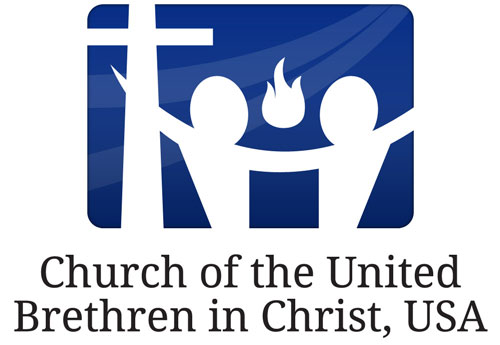
A new logo has been developed for United Brethren churches in the United States. That’s what you see above.
We are not replacing the familiar United Brethren logo (below). That logo remains the official logo of the international United Brethren church, and local churches are free to continue using it. But the new logo applies specifically to the United States National Conference–the UB churches in the USA.
The US logo is easily identifiable with the international logo, and incorporates the three main elements:
- The linked figures (the “United Brethren” part).
- The cross, representing Christ.
- The flame, representing the Holy Spirit.
The Need for a US Logo
The United Brethren churches in the United States haven’t had our their logo since 2001, which is probably news to you. When we adopted an international structure in 2001, with sovereign national conferences in what is now 10 different countries, the familiar logo became the logo of the international church. We have continued using that logo.
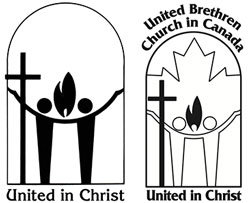
Left: The international UB logo. Right: The Canadian logo.
However, it was felt that we should have a logo specifically for the US National Conference. The UB Church in Canada, many years ago, developed their own logo (right), but none of the other national conferences have followed suit. Which is fine. The international logo works universally.
But this new logo, with some modern twists on the international logo, recognizes the US National Conference as a distinct entity within the worldwide body.
As a local United Brethren church, you are free to use the logo on your website, in your publications, and in any other way you see fit. Or, you can continue using the international logo. No need to run out and redo all of your stationery, or make a new church sign. Use the new logo as it fits your needs.
A Little Background
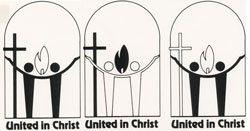 In the 1970s, we produced a denominational logo with three key elements–two linked figures, a cross, and a flame. The logo was refined by a professional design firm in 1979. They actually gave us three versions (right), and churches were free to use any of them. Probably not a great idea, as opposed to settling on a single logo which would be used consistently, but flexibility was desired and that’s what we did.
In the 1970s, we produced a denominational logo with three key elements–two linked figures, a cross, and a flame. The logo was refined by a professional design firm in 1979. They actually gave us three versions (right), and churches were free to use any of them. Probably not a great idea, as opposed to settling on a single logo which would be used consistently, but flexibility was desired and that’s what we did.
In the 1990s, we digitized the logo and settled on just one version–entirely black, with no outlined areas. We also changed the font to something less dated. That’s what you see above, beside the Canadian logo. We’ve been using this logo in all publications for about 20 years.
In 2001, General Conference adopted an international structure consisting of sovereign national conferences, and the logo we had been using became the official logo of the international church. The Canadian national conference developed their own logo, incorporating a maple leaf into the symbol, but none of the other conferences adopted a specific logo for their country.
During the past few years, the US National Conference developed logos for the national office (Healthy Ministry Resources) and for Global Ministries. Then, in late 2011, we began working on a logo to represent the US National Conference.
We hired a Christian graphic designer out of Dallas to develop the initial concepts, with these requirements:
- The logo needed to be easily identifiable with the international logo.
- The logo needed to include the official name of the US churches: “Church of the United Brethren in Christ, USA.”
- The symbol needed to incorporate the three main elements of the international logo: the linked figures, the cross, and the flame.
- The symbol needed to be usable by itself, without the words.
- The logo needed to be institutional yet modern.
And so, after going through a variety of concepts, we narrowed it down to a specific design, which was then refined. Then we passed everything on to another designer for a few further refinements.
And now you see the result–an official logo specifically for the United States churches.
Ready for You to Use
The logo has been posted in the Resources area of the UB website in a variety of formats and sizes (JPG, PNG, GIF, EPS). This includes formats with the words, and formats with just the symbol. The official logo includes the words “Church of the United Brethren in Christ, USA.” However, you may have needs for which the symbol, by itself, works better.
The vector formats (EPS) can be scaled to very large sizes. The other formats–JPG, PNG, and GIF–can be reduced in size without distortion, but will lose some clarity if you increase them in size.
The United Brethren logo is being used by UB churches around the world. In many cases, local people have drawn or painted the logo onto church walls, signs, and banners. And the have taken some creative liberties with the logo, adding their own interesting twists to the familiar design.
The video above shows photos of the logo as used and adapted in various countries. The two concluding slides are the official international logo, and then the new US National Conference logo.
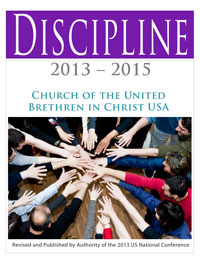 The United Brethren Discipline has been updated with the 20-some revisions made during the 2013 US National Conference on June 27.
The United Brethren Discipline has been updated with the 20-some revisions made during the 2013 US National Conference on June 27.
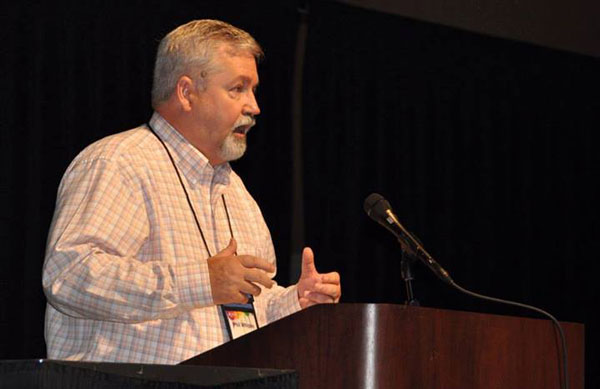
 The Nominating Committee has submitted the ballot for bishop. It has one name on it: Phillip Whipple (right).
The Nominating Committee has submitted the ballot for bishop. It has one name on it: Phillip Whipple (right).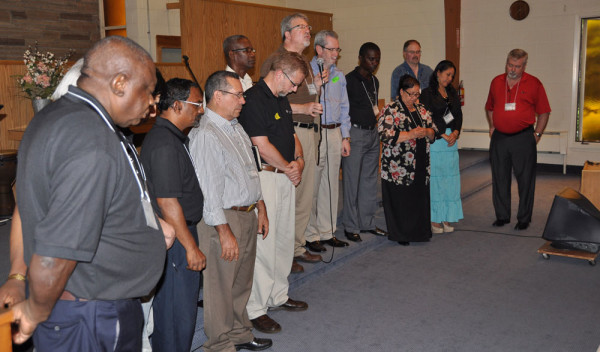
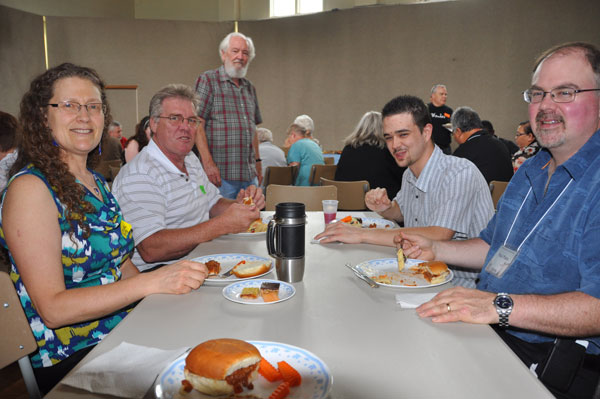
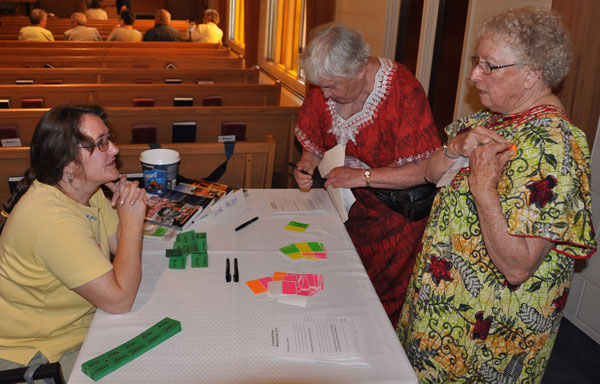
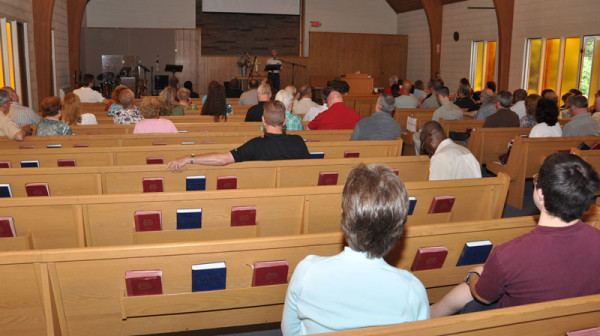
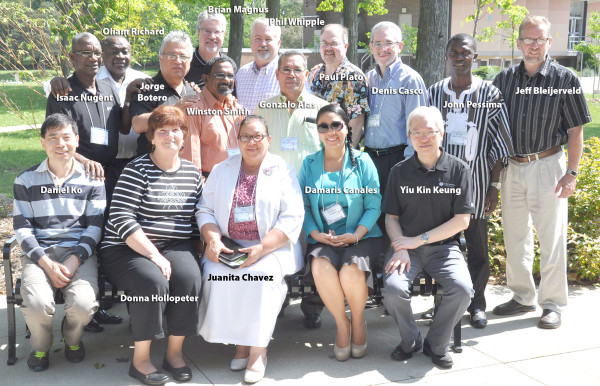
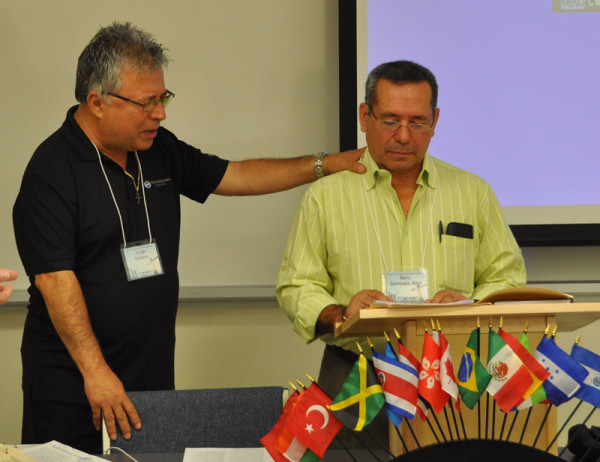
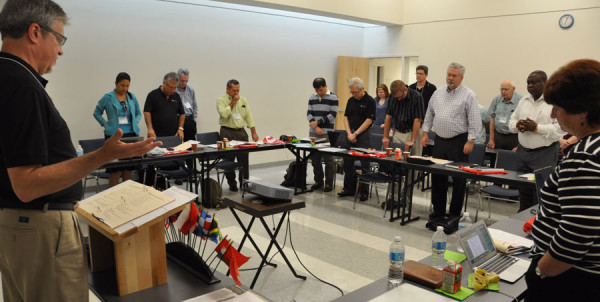
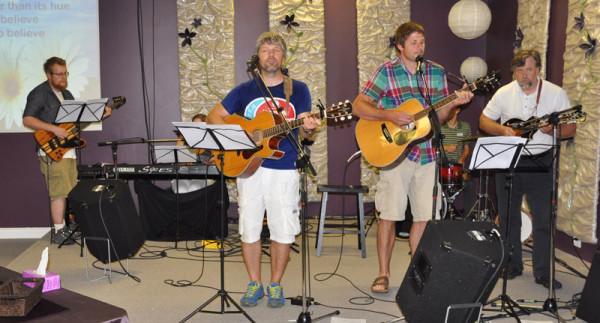
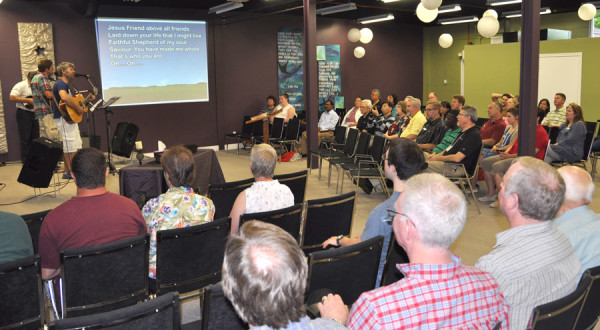
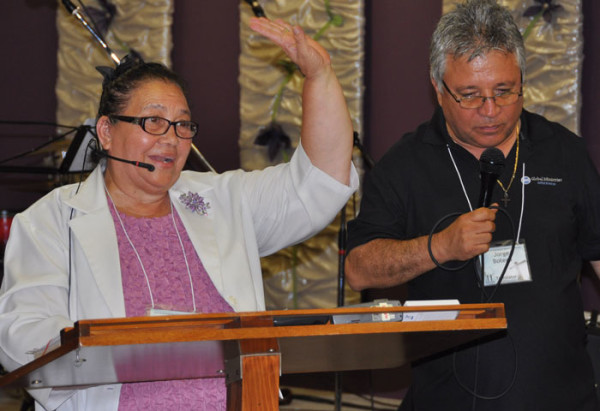
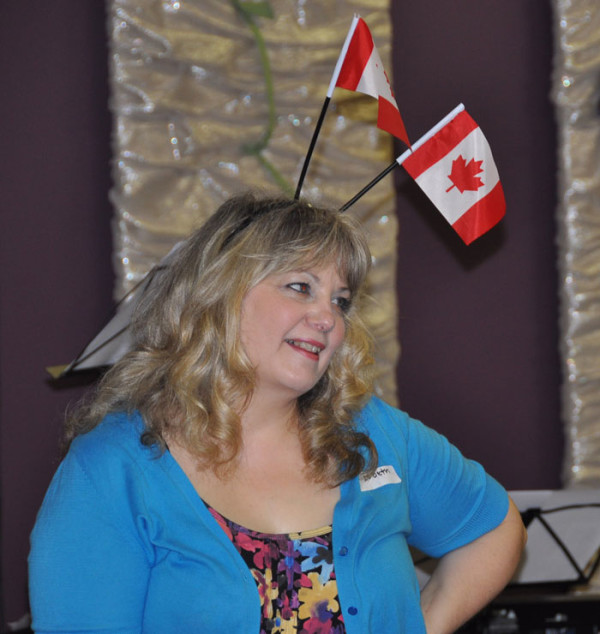
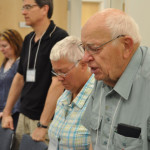
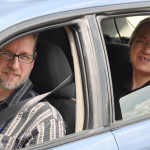
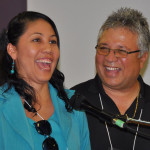
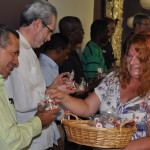
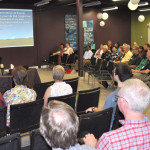
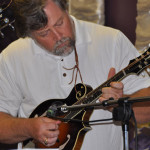
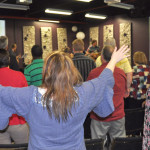
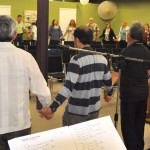


 In the 1970s, we produced a denominational logo with three key elements–two linked figures, a cross, and a flame. The logo was refined by a professional design firm in 1979. They actually gave us three versions (right), and churches were free to use any of them. Probably not a great idea, as opposed to settling on a single logo which would be used consistently, but flexibility was desired and that’s what we did.
In the 1970s, we produced a denominational logo with three key elements–two linked figures, a cross, and a flame. The logo was refined by a professional design firm in 1979. They actually gave us three versions (right), and churches were free to use any of them. Probably not a great idea, as opposed to settling on a single logo which would be used consistently, but flexibility was desired and that’s what we did. Cathy Reich (right), administrative assistant to Bishop Phil Whipple (and earlier to Bishop Ron Ramsey), is mourning the death of her mother. Carolyn Brandon, from Bryan, Ohio, passed away around 6 pm Wednesday, February 13.
Cathy Reich (right), administrative assistant to Bishop Phil Whipple (and earlier to Bishop Ron Ramsey), is mourning the death of her mother. Carolyn Brandon, from Bryan, Ohio, passed away around 6 pm Wednesday, February 13.